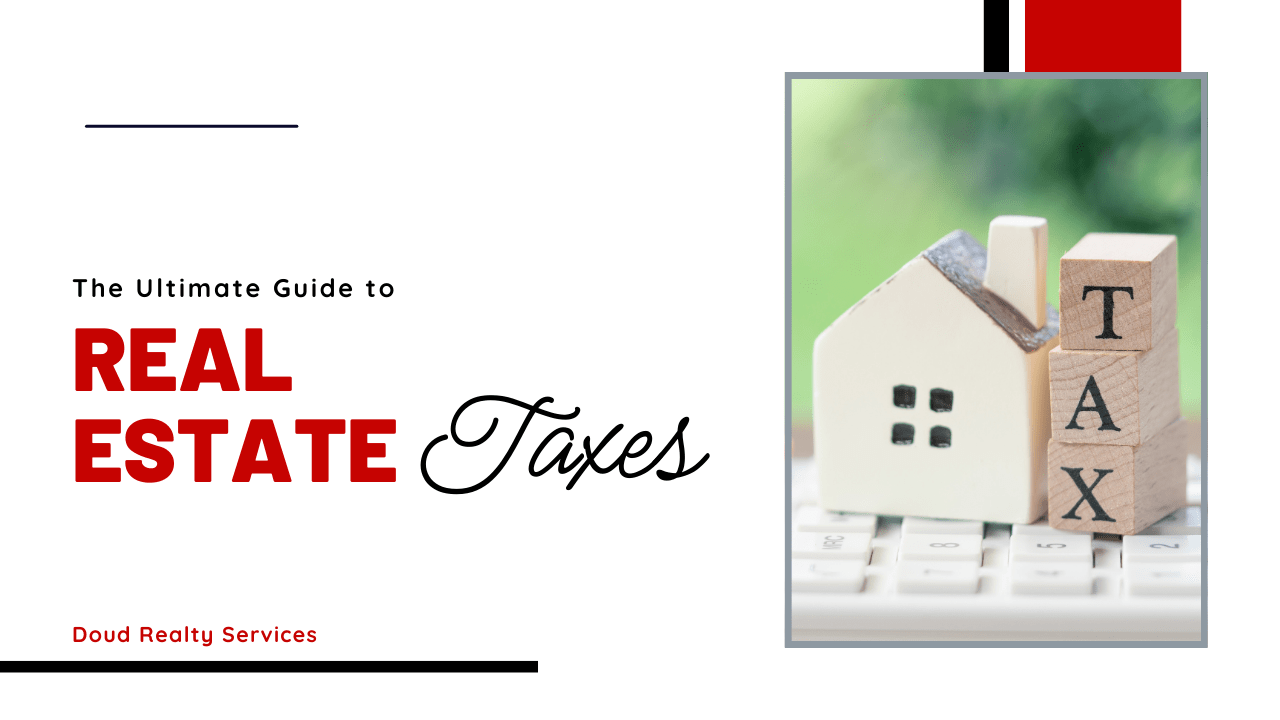Unless you’re brand-new to investing, you know there are a lot of benefits to owning rental property. You’re earning consistent and recurring income in the short term. You’re allowing your asset to appreciate and earn more equity while your tenants contribute to the rent and expenses. It’s a win/win situation in most circumstances.
There are also tax benefits. While you will be required to report your rental income on your tax returns, you can also use several deductions that are unique to rental property owners. This can lower your overall tax liability and allow you to keep more of your annual income.
While you should have a general understanding of taxes and how they impact your investment returns, we always recommend that real estate investors work with a CPA or a tax professional when it comes to what you pay the government. As your Hampton Roads property managers, we’re happy to tell you about what you should be deducting and where you can save. We’ll provide you with a 1099 and all the supporting documentation you need.
Taxes don’t have to be something you dread as an investor. Let’s take a look at how you can save some money on taxes with your real estate investments. Remember to talk to your CPA or tax accountant before you file.
Paying Taxes on Rental Income
You’ll need to declare the income you earn in rent every month. This must be included on your tax forms, and it should total the full amount that you collected over the year. So, let’s say you’re only renting out one property and it earns $2,000 a month in rent. That’s $24,000 per year. Maybe you own a small apartment building and all six units in that building bring in a total of $9,000 per month. That’s an annual income of $108,000.
Claim this income on your tax form, and prepare to be bumped into a higher tax rate, depending on what you earn with your other jobs or business ventures. Don’t worry about how much extra you may have to pay because of that income; when you include all of the business deductions that you can also claim, your tax exposure will be greatly reduced.
Depreciation and Hampton Roads Rental Homes
One of the most important but least-talked about tax benefits for rental property owners is depreciation. Make sure you’re taking this critical benefit if you are eligible. Here’s how it works:
The IRS allows you to write off the deterioration of your rental property, which leads to a loss of value. This might seem counter-intuitive since your value is actually appreciating, but let’s not get into the theory here.
The general rate of depreciation is set by the IRS at 27.5 years. The tax code allows you to accelerate the depreciation loss with your rental property. Most investors use this to offset their tax liability.
This tax benefit only applies to the physical property. It does not pertain to any land. So, if you have a Hampton Roads rental property for which you paid $350,000, and the land the home is on is appraised for $50,000, and the home itself is worth $300,000, the depreciation you deduct can only be on the $300,000 amount.
For most investors, this means you can declare the rental property depreciation on Schedule E of a standard 1040. If you’re claiming depreciation on a property in the year that you began using it as a rental, you’ll use Form 4562.
These are the requirements you must meet in order to use depreciation as a tax break:
The property must be owned by you.
The property must earn rental income.
You must be able to document the useful life of your property. This will depend on the type of rental investment you own. Everything has a different life cycle, or rate at which it wears down. For real estate, this is somewhat standardized and the 27.5 years applies, unless your property is subject to the Alternative Depreciation System, in which case it’s 30 or 40 years (this is rare).
The useful life of the property must be greater than a year. Nothing that wears out in less than a year can be depreciated on your taxes.
If you begin renting out a home in one year and sell it within that same year, you cannot claim depreciation on that property.
Business Expenses and Investment Property
You have some business expenses as a rental property owner. That’s good news, because many of the expenses you incur as a business owner are tax-deductible. There are a few things you should always take advantage of when you’re claiming tax benefits.
Here are some of the most common business expenses you’ll be able to claim as a rental property owner:
Maintenance and Repair Expenses
You spend money in order to maintain your rental home and keep it habitable and safe for your tenants. You pay for repair costs and any materials that you need to keep your property in operable condition, such as paint, drywall, smoke detector batteries, air filters, and other supplies.
Those things are deductible when they’re used to make repairs.
You’ll need to understand the difference between maintenance and renovations or upgrades, because the IRS only allows you to write off the maintenance expenses, not the improvement expenses. The maintenance costs are fully tax deductible, but the money you spend on improving your home will not be immediately reclaimed through tax deductions. You can earn some of that money back through depreciation over the long term, but it’s not a quick and easy write-off like a maintenance bill may be.
Operating Expenses
Outside of maintenance and repair costs, other operating expenses are also deductible on your taxes.
These expenses may include:
Advertising and marketing costs
Commissions to real estate agents or leasing agents
Professional fees for property management, accounting, lawyers, etc.
Insurance premiums
Property taxes
You don’t always have to provide supporting documentation when you file, but always have it easily accessible. You may be audited and if you are, you’ll need to provide proof of what you spent and what you deducted on your year-end taxes.
Deducting Mortgage Interest
Another business expense that you’re permitted to deduct on your year-end taxes is interest. This is most typically going to be the interest you pay on your mortgage. If you have a loan on your rental property, you can deduct the amount you pay in interest every month.
Other types of interest are also eligible to deduct when you file your taxes, and that can also add up to some impressive savings. If you use a credit card, for example, to make purchases for your rental property, you can deduct the interest you pay on that credit card, as long as you can document the purchases are related to your investment. Maybe you’ll buy a couple of appliances for a duplex you own. Or, you’ll stock up on paint that you use for all of your properties during a turnover. The credit card interest you pay is tax deductible.
If this is a deduction you’ll frequently take, you might find it’s easier to keep a credit card that’s specific to your rental property. Separating business from personal finances will make tax time a lot easier.
Travel and Home Office Deductions
Whether you’re working with a Hampton Roads property management company or managing on your own, you may find yourself traveling to your investment property for showings or turnover projects or other reasons.
Travel expenses can be deducted on your taxes. Airfare and lodging can be written off if you’re an out-of-state investor and you occasionally come to Hampton Roads to check on your properties. The criteria you’ll need to meet in order to take this deduction include:
There’s a specific purpose for your business trip.
Most of your time is spent on business activities.
Your expenses are ordinary and necessary (don’t stay in the most expensive hotel)
If you drive to your rental property, you can even deduct the standard mileage. Keep track of your itemized expenses and document everything. The IRS may need to see receipts.
There’s also the home office deduction, which you can take when you treat your rental property as a business and have a dedicated space from which you work. There’s generally a standard deduction for home office use when you file. Do you belong to real estate associations, subscribe to newsletters, or pay for conferences and continuing education? Those fees are eligible to be deducted from the income your rental property earns.
 Taxes don’t have to be something you dread. While no one particularly enjoys paying them, the savings you earn as a real estate investor in Hampton Roads with a rental property can be substantial. Let’s make sure you’re taking all your deductions. Please contact us at Doud Realty Services, Inc. We provide expert property management in Norfolk, Portsmouth, Hampton Roads, as well as surrounding areas such as Virginia Beach, Suffolk, Chesapeake, and Newport News.
Taxes don’t have to be something you dread. While no one particularly enjoys paying them, the savings you earn as a real estate investor in Hampton Roads with a rental property can be substantial. Let’s make sure you’re taking all your deductions. Please contact us at Doud Realty Services, Inc. We provide expert property management in Norfolk, Portsmouth, Hampton Roads, as well as surrounding areas such as Virginia Beach, Suffolk, Chesapeake, and Newport News.


